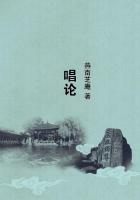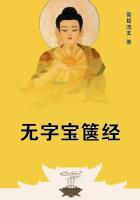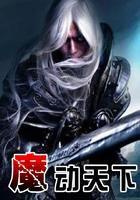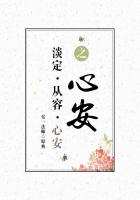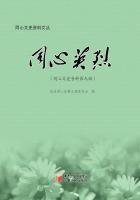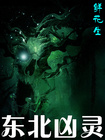How could things be otherwise? Every idea, previous to taking root in their brain, must possess a legendary form, as absurd as it is simple, adapted to their experiences, their faculties, their fears and their aspirations. Once planted in this uncultivated and fertile soil it vegetates and becomes transformed, developing into gross excrescences, somber foliage and poisonous fruit. The more monstrous the greater its vigor, clinging to the slightest of probabilities and tenacious against the most certain of demonstrations. Under Louis XV, in an arrest of vagabonds, a few children having been carried off willfully or by mistake, the rumor spreads that the king takes baths in blood to restore his exhausted functions, and, so true does this seem to be, the women, horrified through their maternal instincts, join in the riot; a policeman is seized and knocked down, and, on his demanding a confessor, a woman in the crowd, picking up a stone, cries out that he must not have time to go to heaven, and smashes his head with it, believing that she is performing an act of justice[10]. Under Louis XVI evidence is presented to the people that there is no scarcity: in 1789, [11] an officer, listening to the conversation of his soldiers, hears them state "with full belief that the princes and courtiers, with a view to starve Paris out, are throwing flour into the Seine." Turning to a quarter-master he asks him how he can possibly believe such an absurd story. "Lieutenant," he replies, "'tis time - the bags were tied with blue strings (cordons bleus)." To them this is a sufficient reason, and no argument could convince them to the contrary. Thus, among the dregs of society, foul and horrible romances are forged, in connection the famine and the Bastille, in which Louis XVI., the queen Marie Antoinette, the Comte d'Artois, Madame de Lamballe, the Polignacs, the revenue farmers, the seigniors and ladies of high rank are portrayed as vampires and ghouls. I have seen many editions of these in the pamphlets of the day, in the engravings not exhibited, and among popular prints and illustrations, the latter the most effective, since they appeal to the eye. They surpass the stories of Mandrin[12] and Cartouche, being exactly suitable for men whose literature consists of the popular laments of Mandrin and Cartouche.
II.
Political incapacity. - Interpretation of political rumors and of government action.
By this we can judge of their political intelligence. Every object appears to them in a false light; they are like children who, at each turn of the road, see in each tree or bush some frightful hobgoblin. Arthur Young, on visiting the springs near Clermont, is arrested,[13] and the people want to imprison a woman, his guide, some of the bystanders regarding him as an "agent of the Queen, who intended to blow the town up with a mine, and send all that escaped to the galleys." Six days after this, beyond Puy, and notwithstanding his passport, the village guard come and take him out of bed at eleven o'clock at nights, declaring that "I was undoubtedly a conspirator with the Queen, the Count d'Artois and the Count d'Entragues (who has property here), who had employed me as arpenteur to measure their fields in order to double their taxes." We here take the unconscious, apprehensive, popular imagination in the act; a slight indication, a word, prompting the construction of either air castles or fantastic dungeons, and seeing these as plainly as if they were so many substantial realities. They have not the inward resources that render capable of separating and discerning; their conceptions are formed in a lump; both object and fancy appear together and are united in one single perception. At the moment of electing deputies the report is current in Province[14] that "the best of kings desires perfect equality, that there are to be no more bishops, nor seigniors, nor tithes, nor seigniorial dues, no more tithes or distinctions, no more hunting or fishing rights, . . . that the people are to be wholly relieved of taxation, and that the first two orders alone are to provide the expenses of the government." Whereupon forty or fifty riots take place in one day. "Several communities refuse to make any payments to their treasurer outside of royal requisitions." Others do better: "on pillaging the strong-box of the receiver of the tax on leather at Brignolles, they shout out Vive le Roi!" "The peasant constantly asserts his pillage and destruction to be in conformity with the king's will." A little later, in Auvergne, the peasants who burn castles are to display "much repugnance" in thus maltreating "such kind seigniors," but they allege "imperative orders, having been advised that the king wished it."[15] At Lyons, when the tapsters of the town and the peasants of the neighborhood trample the customs officials underfoot they believe that the king has suspended all customs dues for three days.[16] The scope of their imagination is proportionate to their shortsightedness. "Bread, no more rents, no more taxes!" is the sole cry, the cry of want, while exasperated want plunges ahead like a famished bull. Down with the monopolist ! -storehouses are forced open, convoys of grain are stopped, markets are pillaged, bakers are hung, and the price of bread is fixed so that none is to be had or is concealed. Down with the octroi ! -barriers are demolished, clerks are beaten, money is wanting in the towns for urgent expenses. Burn tax registries, account-books, municipal archives, seigniors' charter-safes, convent parchments, every detestable document creative of debtors and sufferers ! The village itself is no longer able to preserve its parish property. The rage against any written document, against public officers, against any man more or less connected with grain, is blind and determined.
The furious animal destroys all, although wounding himself, driving and roaring against the obstacle that ought to be outflanked.
III.

